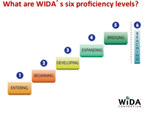- Durham Public Schools
- Frequently Asked Questions
English Learner Services (ESL)
Page Navigation
- English Learner Services (EL)
- ESL Registration Center
- ESL Registration Flyer
- Models of Instruction
- Newcomer Academy Brochure
- Parent Tech Tools
- Recursos adicionales
- Recursos para los estudiantes
- Recursos tecnológicos para los padres
- Frequently Asked Questions
- English Learner Services Central Services Staff Directory
-
Frequently Asked Questions
Q 1.How does DPS identify ESL students?
As students enroll in Durham Public Schools, families are required to complete a Home Language Survey. If the student is an English speaker, no action is required. If the student is documented as speaking a language other than English, the student needs to be screened for potential English Language services at the ESL Registration Center. The Home Language Survey is only administered upon initial enrollment in a school system, regardless of whether the student is coming from another NC school district or out-of-state.
Q2. What do the different types of ESL classes look like?
There are four main models of instruction providing language assistance services. Services are det4ermined based upon the level of English Language Proficiency, number of years in U.S. Schools and academic needs.
For instance, newcomers need more time to acquire English and may receive additional service time.
At the elementary level, students may be served in small groups and/or within the regular classroom, depending upon the service level.
In middle and high school, students are served in a content class and/or an elective class specially designed for their language proficiency level.
Q 3. What are the different levels of ESL proficiency?
There are 6 levels of language proficiency. .As a student’s English Language development increases, their level also increases. For example, Level 1 is a newcomer or beginning level of learning English. Students are expected to make consistent yearly progress until they attain English Language Proficiency.

Q 4 Does being in an ESL class mean my child will be behind academically?
No, being in an ESL class or receiving ESL services, does not mean your child will be behind academically. Language assistance services are designed to provide support to identified English Learners to participate equally and equitably with their English-speaking peers. The focus of the ESL classes is to help them make academic language progress and achieve proficiency.
Q 5 Can they take college prep classes?
Yes, they absolutely can take college prep classes if they meet the same criteria required of their English-speaking classmates.
Q 6 How does my child test out of ESL classes?
When an English Learner achieves a composite score of 4.8 on the ACCESS test, they are considered exited per North Carolina standards. Students are placed in ESL classes that match their language proficiency level. The goal of their placement is to be able to make progress every year until they exit.
Q 6 What does testing out of ESL mean for my child?
When a student tests out of the English Learner program based upon the exit criteria, they will no longer need to receive ESL services, and will no longer need to take the ACCESS assessment.The student should be able to access grade level academic content without support.

